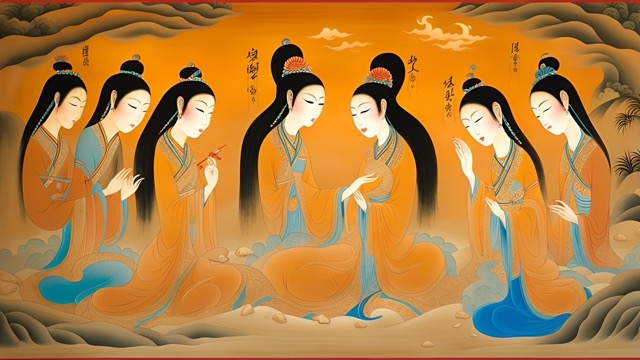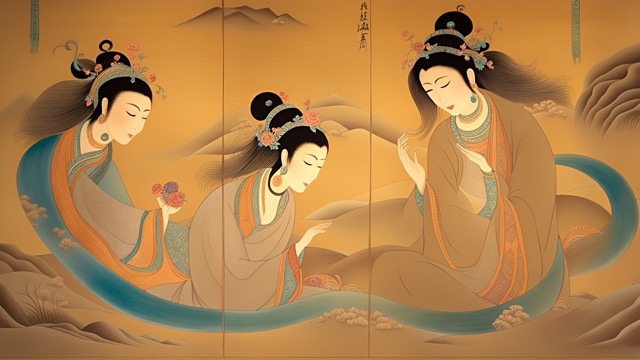Why this article?
Recalling, I was once told:
I will just accept whatever people offer. I won't hold on to traditional thinking that one should not readily accept gifts from others otherwise I will be perceived as being greedy, and I have no shame. Therefore, if the person is willing to give, I am willing to accept. Does't matter if I need it or if I want it.
This leads me to another one
You Will Never Know Unless You Ask
or
You Won't Get Unless You Ask
While on the other hand
If you don't ask, we will give and maybe even more. But if you ask, if we can give, and we decide to give, we will give you just that.
And its variant
When you are ready, I will tell. If not, no point asking.
And then we have
If you have to ask, you’ll never know. If you know, you need only ask (J.K.Rowling)
I have to admit that this has always been a question (or questions to be precise) that I have wondered, and ultimately I decided to shelf it - too taxing, I told myself.
If I am meant to know, I will know.
| The Lotus Pond |
|---|
 |
A week ago, over the weekend I was researching for a paper on the concept of "Akaliko". One of the interesting write-ups that I came across was the discussion on the series of events leading up to the first Discourse in "The Buddha and His Disciples" lecture series (see [1]).
According to the article, several interesting reasons were put forth by various authors....
One relates how the Buddha, having examined the world, noticed that there are indeed those beings who would benefit from his teachings, or would otherwise fall into unwholesomeness. He finally decides to declare the Dharma to the world.
According to another,
While observing the lotus pond, the Buddha sees various stages of lotus buds’ growth. Some remain submerged in muddy waters, some have risen gracefully, and some are on the verge of blooming. Yet some are trying to reach light. The Buddha saw that human beings too, can be categorised as those who have sunken, those who have reached or are ready for the teachings while some still float around in-between.
| The Question that beckons and the Answer that never was... |
|---|
 |
Contradiction or Strategization
What happens if this is a situation encountered at work? Or in social life?
The importance of proactively seeking what you want or need through communication or negotiation cannot be underestimated.
Similarly, "You'll never know unless you ask" suggests that one should be assertive and proactive in expressing our needs or desires. It implies that there's a chance of getting what we want if only we initiate the conversation.
"You won't get if you don't ask" highlights the idea that negotiation and compromise are often necessary to achieve mutually beneficial outcomes. It encourages people to engage in the bargaining process to reach agreements that satisfy both parties.
Is this relevant to the present context?
The second perspective, implies that even if we ask, the answer may be No. It suggests that in certain situations, people may be more inclined to assist or provide something voluntarily if they perceive a genuine need or if they believe it aligns with their interests or values.
However, when a request is made, the outcome depends on various factors, including the request's validity, timing, and the willingness of the other party.
It is important to note that in each perspective, some risks are involved. It's possible that asking for something may lead to a refusal or create a negative impression. While actively asking my come across as being aggressive and that also may create a negative impression.
Therefore, individuals must weigh the potential benefits and risks when deciding whether to ask.
There is a question or a need that is calling for attention or consideration. It implies that there is a situation or desire that prompts someone to think about asking for something. Despite the presence of the question or the desire to ask, the answer, or the response to that question, may never materialized. It suggests that the person may have hesitated to ask, or when they did ask, they did not receive a response.
In "What the Buddha Taught", there are FOUR (4) ways to answer questions:
1.) Some questions are to be answered directly.
2.) Some questions are to be answered analytically.
3.) Some questions are to be answered with counter-questions.
4.) Some questions are not to be answered.
And in the last one question... it implies that one should ask oneself.
Some things are evident to ourselves alone. If we have to ask from others, we may not understand the true meaning.
Sometimes, opportunities are missed because we hesitate to communicate our needs or desires.
Sometimes, opportunities are missed because we are too hasty in communicating our needs or desires.
Drawing the Line
| All fabrications are subject to decay. Bring about completion by being heedful |
|---|
 |
In the same manner..
1.) Some questions are to be asked directly.
2.) Some questions are to be asked analytically.
3.) Some questions are to be asked with further questions.
4.) Some questions are not to be asked.
Here are three
-
The first is to give the issue a shape, to define our need and why the need makes sense. So this shape narrows the potential answers.
-
The second is to determine if the answer expected would actually function as it intended to. It establishes whether the actual performance of whatever answer that seem fit.
-
The third is to set standards for measuring whether the answer would be the rightful one.
Whichever the school of thought, if it turns out that the answers do not lead us to a clearer path, the shape of the question need to be re-examined. Then we try a new shape.
A general rule of thumb that I follow, avoid:
1.) Questions that are asked too early.
2.) Questions that cannot possibly be answered at that point.
3.) Questions that are entangler.
4.) Questions that are evasions or fishers.
Reference
[1] https://www.themindingcentre.org/dharmafarer/wp-content/uploads/2009/12/12.1-Why-the-Buddha-hesitated.pdf